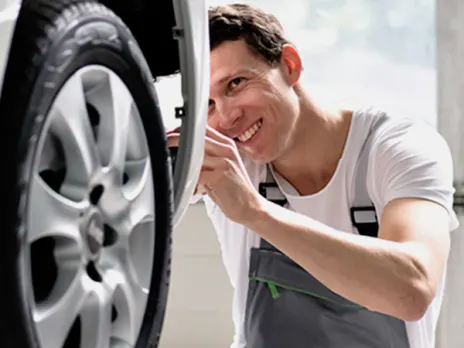Is your MOT coming up again? No one wants to hear that their car has failed its MOT test, but the truth is, it's a common occurrence. In fact, a recent study from the RAC found that around 7.3 million vehicles on the road fail their MOT each year.
The MOT test is an important safety measure that checks whether your car meets the minimum safety standards. In this blog post, we will discuss the most common MOT fails, why they occur, and how you can avoid them to ensure that your car passes its MOT test with ease.
Can a car fail its MOT on lights and signals?
One of the most common MOT failures is due to faulty lights and signals, with 18.9% of MOT failures relating to light issues. The most common faults are blown bulbs, damaged lenses, and wiring problems. These faults are easily detectable, and you can avoid them by carrying out regular checks on your car's lights and signals.
To avoid a failure during your MOT due to lights and signals, not only should you check your lights are working but their condition too, are there any cracks in the exterior, are they clean as plastic lenses get misty over time, you should replace any blown bulbs as soon as you identify they are no longer working to avoid failure during your MOT test.
Can a car fail its MOT on tyres?
Your tyres are the difference between stopping in time, or not, so it’s vital to check them regularly.
Starting with the tyre tread, this is a simple thing for you to check, all you need is a 20p coin. Insert the coin into the tyre tread, if you can see the outer band then your tyre tread is below the legal limit of 1.6mm.
Keep an eye out for any cuts, cracks, or bulges when checking your tyres as these are not safe to drive on.
To avoid tyre-related faults, regularly check the condition of your car's tyres and ensure that they are properly inflated and have adequate tread depth, you should replace your tyres if they are too worn or damaged.

Can a car fail its MOT on brakes?
Brake-related faults are extremely dangerous and need to be addressed immediately. The most common brake-related faults are worn brake pads, damaged discs or drums, and leaking brake fluid.
You may be able to notice if there’s any issue with the brakes just by driving the car, listen out for any strange squealing or grinding noises, this could indicate that the pads are running low.
When it comes to braking, does your car pull to one side, this could be another indicator that they need checking.
Checking your brakes yourself may require you to remove the wheel, so unless you are confident in your skills, its worth having your brakes checked and serviced regularly by a professional.
Can a car fail its MOT on suspension?
The UK’s pothole-ridden road surfaces put our car’s suspension to work!
Faulty suspension can affect your car's stability, handling, and braking performance. The most common suspension-related faults are worn shock absorbers, broken springs, and damaged suspension joints.
Often suspension issues can be difficult to spot, but a few things to keep your eyes and ears open for include any strange noises when cornering or driving over bumpy patches of road, this could be an unusual-sounding clunk.
When you’re parked up, take a look at your car and see whether it sits level, it could be that it’s sitting too high or too low.
To avoid suspension-related faults, it's important to have your car's suspension inspected regularly during your next service and replace any worn or damaged parts promptly.

Can a car fail its MOT on the exhaust?
Faulty exhausts are not just noisy, but they also release harmful emissions that are hazardous to the environment. 7% of MOTs are failed due to problems with exhaust systems. The most common exhaust-related faults are leaks, corrosion, and damage to the catalytic converter. To avoid these faults, regularly inspect your car's exhaust system and replace any worn or damaged parts.
By carrying out regular checks and maintenance on your car's lights, tyres, brakes, suspension, and exhaust, you can avoid the most common MOT fails. If you're unsure how to maintain your car and keep it in top condition, consult a trusted mechanic or car specialist. Remember, a well-maintained car not only passes its MOT test, but it also ensures your safety and the safety of others on the road.